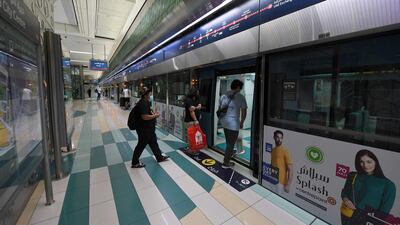As the world turns the corner of three million cases of Covid-19, countries around the globe are preparing to relax some of the restrictions imposed to curb the virus’s spread. In the US, some states are set to start reopening non-essential businesses in the days to come. The eagerness to ease lockdowns extends to Australia, Europe and the Middle East. Lebanon has announced a five-step relaxation plan and many Gulf states are gradually reducing some restrictions over the course of Ramadan.
The vigour to implement these so-called exit strategies, however, is not an indication that the pandemic is over. The coronavirus is very much still a global threat. While some measures are being rolled back, new ones have simultaneously been put in place.
Authorities in Dubai, for instance, are taking some steps to reopen shopping malls, but traders may only allow up to 30 per cent of staff and customers to be present at any given time. Businesses that flout these rules are fined or closed. In Dubai alone, 21 shops have already been closed by authorities, while seven others were issued with fines and 65 were cautioned. Abu Dhabi has also instructed staff working in commercial and industrial firms to report for mandatory testing.
Easing restrictions must necessarily be carried out in phases. This may give the impression that the process to normality is linear, but in reality, it is dynamic. The factors that allow for each phase to be considered a success are complex. They require state institutions, private companies, shop owners, and ordinary people to comply with flexible rules that adapt to the fluidity of the pandemic. In many parts of the Gulf, rules are relaxed according to the severity of the outbreak in each region, city or even neighbourhood. Saudi Arabia, for instance, has allowed shops, malls and some construction companies to operate, while taxis and public transportation are still banned. But in hard-hit Makkah, a 24-hour restriction of movement remains. In the UAE, authorities are carrying out a mass-testing campaign to stop the spread of the virus. More than a million tests have been administered nationwide with as many as 35,000 people tested per day and newly opened centres are dedicated to testing low-income workers for free. On Sunday, authorities allowed the movement of people and traffic to resume in the Al Ras and Naif neighbourhoods in Dubai. The areas were previously in a month-long quarantine, during which time 6,000 local residents were tested.
These dynamic strategies have allowed for a measure of normal life to continue where it can without compromising efforts to keep the coronavirus pandemic at bay. Striking a balance between the dual imperatives of saving lives and saving livelihoods is a difficult challenge. The WHO has warned of a possible second waves of infection, particularly in hard-hit countries such as Iran where infection rates are high and transparency on infection rates is lacking.
As new ways to ease restrictions are found, we all have a responsibility to keep ourselves and one another out of harm’s way. The best way to do this is by remaining well informed of changing circumstances, and adapting to them based on the guidelines set by public health authorities. In the absence of a foolproof solution to the pandemic, prudence and precaution are the best preventative measures we have.


